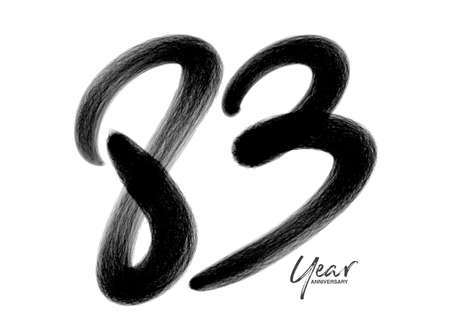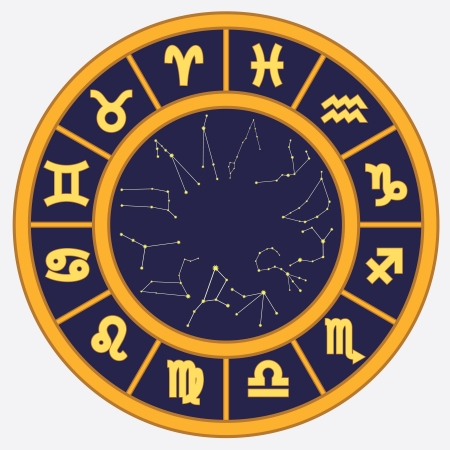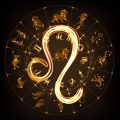Understanding Manglik Dosh in Indian Astrology
Manglik Dosh, also known as Mangal Dosha or Kuja Dosha, is a significant concept in Indian astrology that plays a crucial role in matrimonial considerations. Rooted deeply in Vedic astrology, Manglik Dosh arises when Mars (Mangal) occupies certain positions in a person’s natal chart, particularly the 1st, 2nd, 4th, 7th, 8th, or 12th house. This planetary placement is believed to bring about challenges and turbulence in marital life if not addressed appropriately.
The origins of this belief can be traced back to ancient Vedic texts, where celestial influences were meticulously studied and interpreted. In traditional Hindu society, astrology is not merely a superstition but an integral part of cultural practices, especially during marriage arrangements. The presence of Manglik Dosh in a horoscope often becomes a decisive factor for families while seeking suitable matches for their children.
In the context of Indian matrimonial traditions, the assessment of Manglik Dosh is considered essential to ensure harmony and longevity in marriage. Many families consult experienced astrologers to match horoscopes before proceeding with wedding proposals. While some view this as a protective measure against marital discord, others question its scientific basis and relevance in modern times. Regardless, Manglik Dosh continues to influence matchmaking practices across India, reflecting the enduring interplay between astrology and culture.
Common Myths Surrounding Manglik Dosh
Manglik Dosh, also known as Mangal Dosha or Kuja Dosha, holds a significant place in Indian astrology and matrimonial discussions. Over centuries, various myths and misconceptions have developed around this astrological condition, shaping the beliefs and practices of countless Indian families. These cultural narratives often influence decisions related to marriage alliances and personal relationships. Below, we highlight some of the most widely held beliefs about Manglik Dosh in Indian society:
Popular Myths About Manglik Dosh
| Myth | Cultural Narrative | Prevalence |
|---|---|---|
| Mangliks Bring Bad Luck to Spouse | It is believed that if a Manglik marries a non-Manglik, it may cause misfortune, ill-health, or even the untimely death of the non-Manglik spouse. | Highly prevalent across North and South India, especially among traditional families. |
| Mangliks Must Only Marry Mangliks | Many consider it mandatory for Mangliks to marry only other Mangliks to neutralize negative effects. | Commonly practiced in conservative households and arranged marriage settings. |
| Manglik Dosh is Permanent and Unchangeable | The belief persists that once identified as a Manglik, the dosh cannot be removed or remedied. | Especially seen among older generations and rural communities. |
| Kumbh Vivah Solves All Problems | A symbolic marriage with a tree or an object (Kumbh Vivah) is thought to nullify the dosh completely. | This ritual is popularized by astrologers and followed in many regions. |
| All Mangliks Face Delayed Marriage | There’s a widespread assumption that Manglik individuals will inevitably encounter delays or obstacles in finding a suitable match. | This narrative is frequently heard during matrimonial negotiations across India. |
Cultural Narratives Shaping Perceptions
These myths are deeply embedded within Indian society, transcending regional boundaries from Punjab to Tamil Nadu. Family elders often consult astrologers before proceeding with marriage proposals, leading to heightened anxiety if one of the prospective partners is declared Manglik. The fear of social stigma and familial pressure further reinforces these beliefs. In many cases, parents go to great lengths—such as performing elaborate rituals or seeking multiple astrological consultations—to ensure their child’s marital harmony.
The Role of Media and Matrimonial Platforms
Indian cinema, television serials, and popular matrimonial websites have further cemented these myths by portraying Manglik Dosh as a critical factor in matchmaking. As a result, even urban and educated families sometimes give undue importance to this dosh while considering marriage proposals.

3. Popular Misconceptions and Their Roots
In the Indian context, Manglik Dosh—or Mangal Dosha—has long been surrounded by a host of misconceptions that deeply impact marriage decisions across communities. A prevalent belief is that a person with Manglik Dosh will bring misfortune or even cause harm to their spouse, particularly in matters of health and longevity. This misconception often arises from an incomplete or superficial reading of astrological charts, where the presence of Mars in certain houses is immediately labeled as negative without understanding the individual’s entire horoscope or considering planetary aspects and remedies.
Many families, especially in North India, hastily categorize prospective brides or grooms as “Manglik” based on generalized rules rather than consulting qualified astrologers who can interpret nuances like partial doshas, planetary conjunctions, or cancellations (known locally as “Mangal Dosh Nivaran”). The widespread reliance on hearsay and unverified online tools further perpetuates these myths. For instance, it is not uncommon for matrimonial advertisements to specifically state “Non-Manglik only,” reflecting societal anxiety rooted more in social conditioning than authentic astrological insight.
The roots of these misconceptions lie partly in a traditional fear of marital discord and widowhood, themes that are historically sensitive in Indian society. Over generations, stories of ill-fated marriages have been attributed to Manglik Dosh without critical examination or evidence. Moreover, the commercialisation of astrology—wherein some practitioners exploit fears for financial gain—exacerbates misinformation and leads to unnecessary social stigma for those labelled as Manglik.
Misunderstandings about Manglik Dosh also stem from a lack of awareness regarding corrective measures or “pariharas,” such as performing specific pujas, observing fasts, or matching horoscopes with another Manglik partner (known as “Manglik-Manglik match”). These remedies are often ignored in mainstream narratives, overshadowed by exaggerated claims about the dosha’s supposed dangers. As a result, many individuals face undue pressure and emotional stress during the marriage process, sometimes leading to broken alliances or delayed weddings despite there being no substantial astrological threat.
Ultimately, misinformation surrounding Manglik Dosh continues to shape marriage decisions across urban and rural India. This highlights the urgent need for culturally informed education on Vedic astrology and its principles among both astrologers and laypersons. Dispelling myths through awareness can pave the way for more rational and compassionate matrimonial choices within the diverse fabric of Indian society.
4. Scientific and Astrological Perspectives
In contemporary India, the discussion around Manglik Dosh often pivots between traditional beliefs and the growing influence of rational and scientific thought. Let us examine how Manglik Dosh is perceived from three distinct angles: rational, scientific, and modern astrological viewpoints.
Rational Viewpoint
Many Indian rationalists argue that Manglik Dosh is rooted more in cultural anxiety than in empirical evidence. The core concern revolves around Mars’ position in the horoscope, but no scientific studies have established a direct link between planetary positions at birth and marital discord or longevity. Instead, such beliefs are seen as psychosocial constructs perpetuated by centuries-old customs.
Scientific Perspective
| Aspect | Scientific Assessment |
|---|---|
| Astronomy vs Astrology | Astronomy regards Mars as a planet with physical properties; astrology attributes Mars with metaphysical influences, which lack empirical support. |
| Empirical Evidence | No peer-reviewed studies demonstrate any verifiable effects of Manglik Dosh on personal relationships or life events. |
| Psycho-social Impact | The belief in Manglik Dosh can create stress and influence decision-making, but these outcomes stem from societal attitudes rather than any planetary force. |
Modern Astrological Views
Not all astrologers today adhere to strict interpretations of Manglik Dosh. In metropolitan areas like Mumbai, Delhi, and Bangalore, many contemporary astrologers advocate for a more nuanced approach. They suggest considering an individual’s entire horoscope rather than isolating Mars’ placement. Some even recommend practical remedies or compatibility checks instead of outright rejections of marriage proposals involving Manglik individuals.
Summary Table: Perspectives on Manglik Dosh
| Perspective | Main Belief/Approach | Relevance in Modern India |
|---|---|---|
| Traditional Astrology | Manglik Dosh must be remedied for marital harmony; rituals prescribed. | Still prevalent, especially in rural and semi-urban communities. |
| Scientific Community | No empirical basis; viewed as superstition. | Gaining traction among youth and urban populations. |
| Modern Astrologers | Holistic chart analysis; flexible interpretation of doshas. | Increasing acceptance in progressive circles. |
| Rational Thinkers/Skeptics | Manglik Dosh is a social construct with psychological impact only. | Influential among educated Indians. |
Key Takeaway:
The debate over Manglik Dosh in Indian society reflects an evolving landscape where science, tradition, and pragmatism intersect. As awareness grows, more families are choosing to balance respect for cultural heritage with a rational evaluation of such age-old beliefs.
5. Truths and Realities: What Indian Astrologers Say Today
In the contemporary landscape of Indian astrology, interpretations of Manglik Dosh have become more nuanced and diverse than ever before. While traditional beliefs regarding Manglik Dosh still persist, many modern astrologers are revisiting these ideas, seeking to distinguish between myth and authentic astrological insight.
Changing Perspectives Among Astrologers
Today, a growing number of Indian astrologers argue that the influence of Manglik Dosh is often exaggerated due to cultural fears rather than astrological reality. Many experts emphasise that the presence of Mangal Dosha in one’s kundli (birth chart) should not be viewed as an absolute barrier to marriage or happiness. Instead, they advocate for a balanced approach—assessing the complete horoscope rather than focusing solely on Mars’ position.
Diversity in Expert Views
The opinions among astrologers are far from uniform. Some continue to follow classic texts and traditions, recommending remedies like pujas or matching charts with another Manglik partner. Others, however, stress that factors such as education, mutual respect, compatibility, and family background play a much larger role in marital success than a single planetary placement. Notably, several prominent astrologers now believe that Manglik Dosh effects can be neutralised or mitigated by positive planetary combinations elsewhere in the chart.
Evolving Interpretations for Modern India
With increasing awareness and education, many urban Indian families are less likely to reject matrimonial alliances solely based on Manglik Dosh. Some astrologers even suggest that the dosha’s real-life impact may be less significant than previously believed and encourage open communication between prospective couples instead of fear-driven decisions.
In essence, while Manglik Dosh remains an important consideration in Indian matrimonial astrology, today’s leading astrologers urge individuals to move beyond superstitions and adopt a holistic, evidence-based perspective when interpreting its implications.
6. Societal Impacts and Changing Attitudes
The beliefs surrounding Manglik Dosh have traditionally held a profound influence over Indian society, especially in the context of marriage alliances. For generations, the presence of Manglik Dosh in a persons horoscope was regarded as an ominous sign, often resulting in delayed marriages or social ostracisation. This astrological condition has been particularly significant in shaping gender roles, with women frequently facing heightened scrutiny and stigma compared to their male counterparts.
Influence on Marriages
Manglik Dosh is deeply intertwined with matrimonial decisions across many Indian communities. Families often consult astrologers before proceeding with marriage proposals to ensure compatibility, and a Manglik dosha can lead to cancelled engagements or demands for elaborate remedial rituals (like Kumbh Vivah). In some cases, this belief system fosters anxiety and stress among young adults and their parents, who fear social judgement if they ignore traditional astrological guidance.
Gendered Ramifications
The impact of Manglik Dosh is noticeably gendered. Women labeled as ‘Manglik’ may face increased pressure to undergo remedies or may be considered less desirable for marriage, sometimes leading to reduced bargaining power in marital negotiations. In extreme instances, the stigma attached to being a Manglik woman results in psychological distress and perpetuates harmful patriarchal norms about female ‘purity’ and responsibility for marital harmony.
Urbanisation and Changing Perspectives
With rapid urbanisation, exposure to global cultures, and rising levels of education—especially among urban youth—attitudes towards Manglik Dosh are gradually shifting. Many younger Indians are questioning the scientific validity of such beliefs and prioritising personal compatibility over astrological charts. In metropolitan areas like Mumbai, Bengaluru, and Delhi, there is growing acceptance of inter-caste and inter-faith marriages where horoscopes are either ignored or given secondary importance.
The Role of Media and Social Movements
Media representations, celebrity marriages that defy astrological conventions, and social media discussions have also contributed to changing perceptions. Campaigns advocating for rational thinking encourage individuals to critically evaluate traditional beliefs like Manglik Dosh.
Looking Ahead
While belief in Manglik Dosh still persists in many rural and semi-urban areas due to entrenched customs, the tide appears to be turning in urban India. The gradual shift signals hope for a future where individual choice outweighs astrological determinism in matters of marriage and gender equality.
7. Guidelines for Navigating Manglik Dosh Concerns
In the context of Indian astrology, concerns regarding Manglik Dosh can create emotional stress for individuals and families. Understanding how to approach these concerns with a balanced perspective is essential. Here are some practical and culturally sensitive strategies to help navigate this journey effectively.
Open Dialogue Within Families
Initiate honest conversations within the family about Manglik Dosh and its implications. Encourage all members, especially elders, to express their beliefs while also being open to new perspectives rooted in both tradition and rationality. Respectful dialogue can reduce misunderstandings and foster a supportive environment.
Seek Guidance from Trusted Astrologers
If you choose to consult an astrologer, ensure they are credible and experienced in addressing Manglik Dosh without instilling unnecessary fear. Ask for clear explanations of astrological findings and recommended remedies. Avoid practitioners who exploit anxieties or suggest expensive rituals without clear reasoning.
Culturally Sensitive Solutions
Many families opt for traditional remedies such as performing Manglik dosh nivaran puja or Kumbh Vivah (symbolic marriage to a tree or idol). While these practices provide cultural comfort, it is vital to balance them with informed choices. Discuss the symbolic significance with elders to bridge generational beliefs.
Focus on Compatibility Beyond Astrology
While astrology plays a role in matrimonial decisions, also consider compatibility based on shared values, mutual respect, and understanding. Encourage prospective couples to spend time getting to know each other’s aspirations and personalities beyond birth charts.
Stress Reduction Techniques
- Meditation & Yoga: Practising mindfulness through meditation and yoga can alleviate anxiety associated with Manglik Dosh concerns.
- Counselling Support: If stress becomes overwhelming, seek professional counselling or join support groups where individuals share similar experiences.
Empowering Personal Decisions
Remind yourself that astrology is just one aspect of life’s journey. Empower yourself and your loved ones by making informed choices rather than succumbing solely to superstition or societal pressure. Embracing a holistic approach that combines tradition, logic, and empathy can lead to fulfilling relationships and peace of mind.


